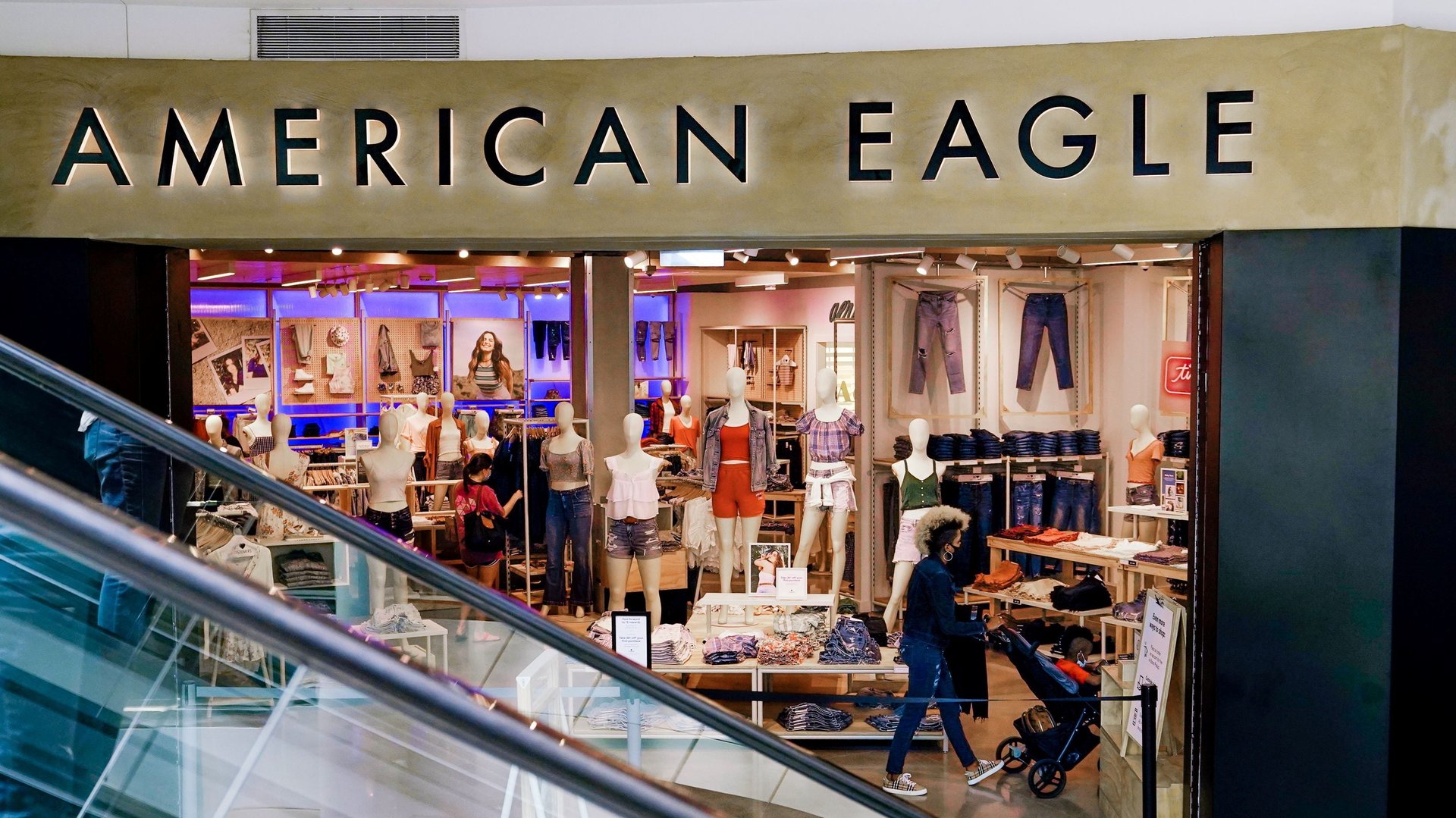American Eagle just bought its second supply chain company
American Eagle, the mid-sized apparel company best known for its jeans, is taking control of its supply chains. Yesterday (Dec. 29), the retailer bought the e-commerce fulfillment company Quiet Logistics for $360 million. It’s the second logistics company American Eagle has bought this year, after it absorbed the e-commerce delivery startup AirTerra in May.


American Eagle, the mid-sized apparel company best known for its jeans, is taking control of its supply chains. Yesterday (Dec. 29), the retailer bought the e-commerce fulfillment company Quiet Logistics for $360 million. It’s the second logistics company American Eagle has bought this year, after it absorbed the e-commerce delivery startup AirTerra in May.
American Eagle is one of many retailers looking to shore up their logistics operation after the supply chain shocks of 2021. Soaring shipping rates and lengthy port delays led some companies to resort to desperate measures—like chartering coal ships to transport soda ingredients—just to keep their inventories full.
Businesses are now embracing resilient supply chains, determined to never again face the same level of chaos they’ve dealt with during this holiday shopping season. American Eagle’s logistics acquisitions are an example of the strategies smaller retailers are using to keep up with the well-oiled logistics machinery of retail giants like Amazon and Walmart.
Quiet Logistics and AirTerra help American Eagle scale up its supply chains
American Eagle plans to keep operating AirTerra and Quiet Logistics as independent companies, serving dozens of other clients. Before being bought, Quiet Logistics ran e-commerce fulfillment centers in six US cities for 50 companies, including American Eagle. AirTerra had yet to ship a single package before being bought, but American Eagle plans to expand its business to serve other companies, too.
The idea is that serving other companies will help AirTerra and Quiet Logistics grow much larger than they would if they only handled American Eagle’s supply chains. “The more people that get on, it helps to build the AirTerra business as well as support the American Eagle business, providing economies of scale, and transportation benefits for us,” COO Michael Rempell told investors on a Sept. 2 earnings call.
In the meantime, American Eagle gets to absorb the revenue that AirTerra and Quiet Logistics generate in the growing market for logistics services. Plus, since American Eagle owns both firms, it can prioritize its own needs ahead of other clients if it ever faces another supply chain crunch like the one the world is experiencing now.
It’s the same strategy that Amazon has pursued with its Fulfillment by Amazon service. Amazon’s network of trucks, vans, planes, and warehouses serving its third-party retail clients has made it relatively cheaper for Amazon to handle its own in-house logistics. American Eagle sees its acquisitions as a chance to tap into the same benefit, even though it’s a much smaller company.
“Previously, these benefits were only available to the largest shippers, to the Amazons, or Targets, or Walmarts,” said Rempell. “And we looked at [AirTerra] as a company we wanted to use for the American Eagle business…it completely fits with our strategy of leveraging scale and innovation to help us manage costs and improve service.”
As retail shifts online, supply chains become more important
Even before the pandemic, American Eagle’s clothing sales were changing: In-store purchases held steady between 2015 and 2019, but all of the company’s revenue growth was coming from its online sales. Then, in 2020, the pandemic pushed shoppers away from brick-and-mortar stores. Online sales went from 30% of American Eagle’s revenues in 2019 to 45% in 2020.
As more of American Eagle’s business shifts toward online, direct-to-consumer sales, it becomes more important for the company to control its own supply chain.
“It used to be that just if you had great brands and you had great products, you won. In today’s world, that’s not the case,” said Rempell. “There’s a bifurcation happening in retail where it’s not just great brands, it’s not just great products, but you need incredibly efficient, agile, fast operations.” If they’re not buying in stores, that’s the only customer service shoppers get.